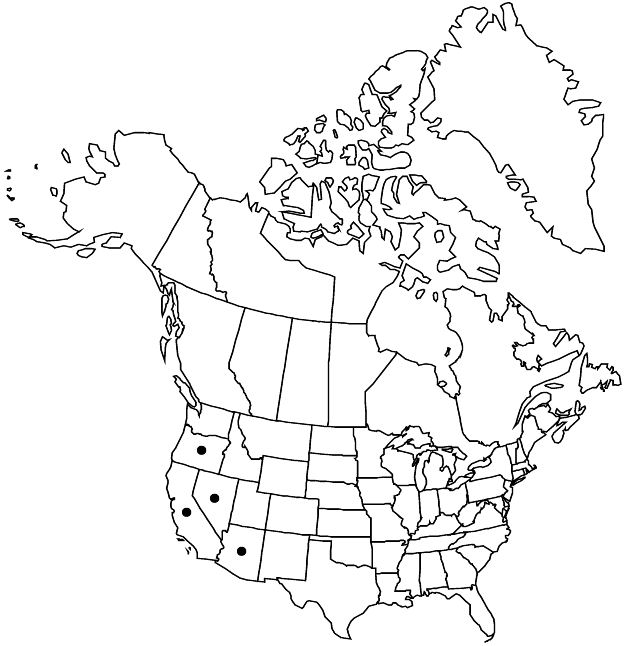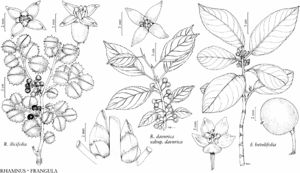Rhamnus ilicifolia
Proc. Calif. Acad. Sci. 2: 37. 1863.
Shrubs or small trees, 1–4 m, unarmed. Branchlets gray, stiff, glabrous or densely and softly hirtellous. Leaves persistent, alternate; petiole 2–10 mm; blade usually dull green, sometimes reddish-brown, abaxially, glossy to dull green adaxially, broadly elliptic to oblong, orbiculate, or ovate, 2–4.5 cm, distinctly coriaceous, base cuneate to nearly truncate, margins spinulose to spinose-dentate, apex rounded or obtuse to truncate or emarginate, both surfaces glabrous; secondary-veins 5–7 pairs, all diverging at nearly same angle. Inflorescences fascicles or flowers solitary. Pedicels 2–4 mm. Sepals 4. Petals 0. Drupes red, globose, 4–6 (–8) mm; stones 2.2n = 24.
Phenology: Flowering Jan–Jun.
Habitat: Canyon slopes and bottoms, rock faces, open hillsides, sandstone ridges, serpentine slopes, roadsides, stream benches, riparian areas, meadows, coastal sage scrub, chaparral/desert transition, chaparral, woodlands, montane forests.
Elevation: 100–2200(–2400) m.
Distribution

Ariz., Calif., Nev., Oreg., Mexico (Baja California)
Discussion
Selected References
None.
Lower Taxa
"thin" is not a number.
